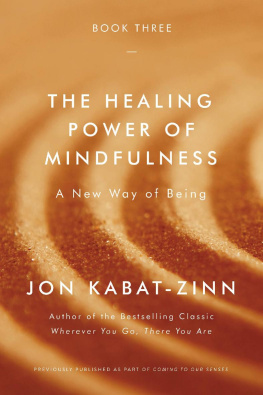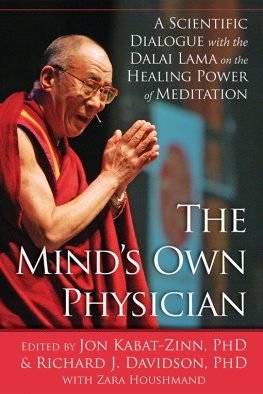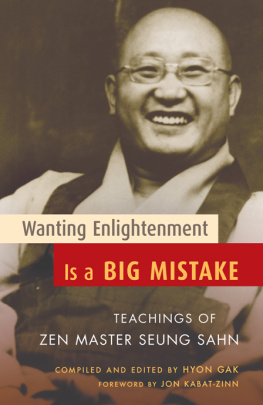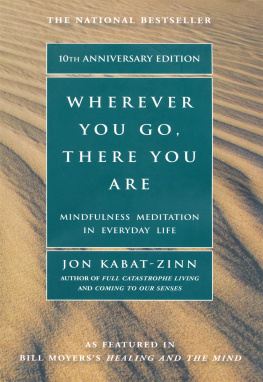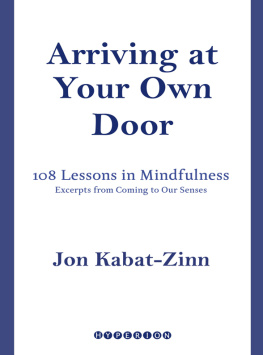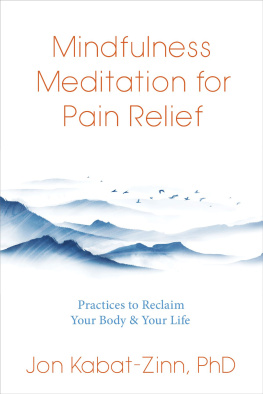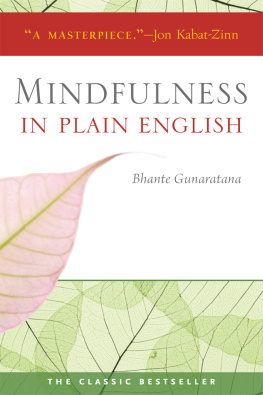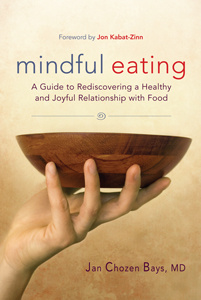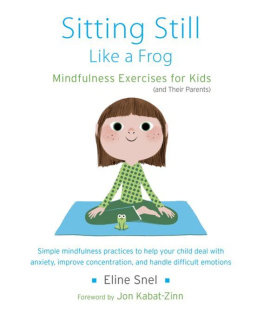
Copyright 2018 by Jon Kabat-Zinn, Ph.D.
Cover design by Joanne ONeill
Cover copyright 2018 by Hachette Book Group, Inc.
Letter to Jon Kabat-Zinn from Margaret Donald in the Foreword Margaret Donald, used with permission.
Hachette Book Group supports the right to free expression and the value of copyright. The purpose of copyright is to encourage writers and artists to produce the creative works that enrich our culture.
The scanning, uploading, and distribution of this book without permission is a theft of the authors intellectual property. If you would like permission to use material from the book (other than for review purposes), please contact permissions@hbgusa.com. Thank you for your support of the authors rights.
Hachette Books
Hachette Book Group
1290 Avenue of the Americas
New York, NY 10104
hachettebooks.com
twitter.com/hachettebooks
Originally published in hardcover as part of Coming to Our Senses by Hyperion in January 2005.
First Edition: November 2018
Credits and permissions appear beginning and constitute a continuation of the copyright page.
Hachette Books is a division of Hachette Book Group, Inc.
The Hachette Books name and logo are trademarks of Hachette Book Group, Inc.
The publisher is not responsible for websites (or their content) that are not owned by the publisher.
The Hachette Speakers Bureau provides a wide range of authors for speaking events. To find out more, go to www.hachettespeakersbureau.com or call (866) 376-6591.
Library of Congress Control Number: 2018943583
ISBNs: 978-0-316-41176-9 (trade paperback), 978-0-316-52205-2 (ebook)
E3-20180929-JV-PC
for Myla for Tayo, Stella, Asa, and Toby for Will and Teresa for Naushon for Serena for the memory of Sally and Elvin
and Howie and Roz for all those who care for what is possible for what is so for wisdom for clarity for kindness for love
Contents
Mindfulness is a wise and potentially healing way of being in relationship to what befalls us in life. And, improbable as it may sound, that includes anything and everything you or any of us might encounter. Even when facing extremely challenging life circumstances or in their aftermath, there is profound promise associated with the cultivation of mindfulness. You may be surprised at just how wide-ranging its effects are or could be if you are open to at least putting your toe in the waters of formal and informal meditation practice and seeing what unfolds.
As the majority of people who take the MBSR (mindfulness-based stress reduction) program discover, as well as those who come to mindfulness through some other door, the curriculum is none other than life itself: facing and embracing your life as it is, including whatever you may be dealing with in any given moment. And underscore whatever. The challenge, as it always is with mindfulness as a practice and as a way of being, is this: How are you going to be in wise relationship to this moment as it is, however it is, including all the annoying, unwanted, and terrifying elements that arise on occasion and need facing? Is it possible to be open to the lessons you can learn from approaching lifeand all your momentsin a radical new way?
In my vocabulary, the word healing is best described as coming to terms with things as they are. It doesnt mean fixing, and it doesnt mean curing, as in fully restoring an original condition, or making whatever it is that is problematic simply go away.
The process and practice of coming to terms with things as they are very much does mean investigating for yourself whether you actually even know how things are or if you just think you doand therefore, in the very way you choose to go about thinking about your situation, mis-take the actuality of things for your narratives about them. Coming to terms with things as they are involves experimenting with how you, we, all of us might redefine and thereby transform our relationship with what is actually so, including our obvious not knowing of how things are going to unfold even in the very next moment. This inward stance opens up boundless possibilities we could never have conceived of. Why? Because our very thinking patterns are so limiting, weighed down as they are by our astonishingly unexamined habits of mind. In this book we are going to be cracking those habits wide open, over and over again, virtually moment by moment, thereby apprehending the openings and opportunities that arise when we do so; when, in Derek Walcotts words, you greet yourself arriving at your own door.

In my travels, I frequently encounter people who tell me, unbidden, that mindfulness has given their life back to them. They often share their stories of unbelievably horrendous life circumstances, events, or diagnoses that nobody would ever wish on anybody. That is the way they usually phrase it: Mindfulness (or the practice) has given my life back to me, or has saved my life. It is frequently accompanied by an outpouring of gratitude. When this sentiment is communicated to me either face to face or in a letter or an e-mail, it invariably sounds so authentic and unique that I have the definite sense that it is not being exaggerated.
Interestingly, every single person who engages in the practice of mindfulness fairly systematically over time has followed her or his or their own unique trajectory while at the same time, using the same invariant set of formal meditation practices that we use in MBSR (the body scan, sitting meditation, mindful yoga, and mindful walking) as described in Book 2 of this series, Falling Awake , as well as, of course, by bringing mindfulness into their everyday encounters with life in whatever ways they can manage, always unique.
Here is an expression of such gratitude that I received recently in an e-mail passed on by my publisher in the UK, to which the writer had given the subject line A Word of Appreciation:
Dear Professor Kabat-Zinn
Having read all your books (some more than once) and survived what was described as terminal esophageal cancer, I write to let you know how important a part they played in my recovery. Its now five years since the day I was (rather heartlessly) told in July You might last till Christmas. Some last longer. If you need anything, just call the hospice.
The chronology of my journey is fraught with mistakes, including the use of the wrong patient notes when planning radical chemo and radiotherapy. Two vertebrae in my spine were broken as a result of the radiotherapy overdose, but here I am on 19th October 2017 into the first six weeks of an MSc in Mindfulness at Aberdeen University. The dream is to be fully qualified to help seriously ill patients in our local cancer support centres using techniques I learned from your CDs, videos, and books. Only fully qualified volunteers are allowed to work with patients.
Your Full Catastrophe Living inspired me and became my bible during my lowest phase along with Wherever You Go, There You Are. At the moment Im planning the first major 8,000 word essay on this degree course and am told that my theme (Meditation Heals) is not ideal for academic research. I find this puzzling and wonder if you could advise me on where I should be looking for inspiration
It is no exaggeration to say that my readings of your work have saved my life and Im making the most of every breath I was told I wouldnt be taking. I would greatly appreciate a word of guidance from you as I attempt to realize this dream of effectively helping sick patients discover their own power to heal themselves. How best can this become an academic study?
Next page
